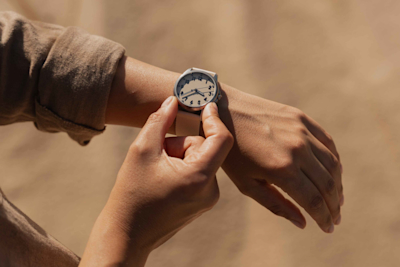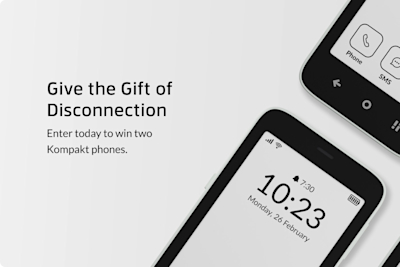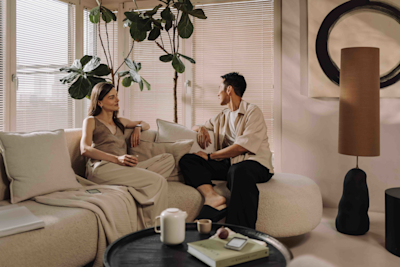
The Unplugged
This is the first article in the blog series of our guest writer, Jadelin Pikake Felipe. She writes about her research on college students intentionally unplugging from cell phones. In this post she will introduce readers to a minority group she calls The Unplugged.
The tension of not wanting to be tethered to our smartphones is real and one I have witnessed firsthand as an educator and a researcher. Over the past ten years, I have worked on college campuses, led student groups, and advised middle school, high school, and adult learners.
In these interactions, I’ve seen phones used in both positive and negative ways–from using a smartphone to participate in a virtual scavenger hunt as part of new student orientation, to animating a 2D drawing and bringing it to life to a 3D character, to being a serious distraction to in-person conversations, and even creating safety risks to others when preoccupied with their phones.
I’ve paid a lot of attention to what people have said (and not said) about their phone use, how others use their phones, and their desire to be less addicted to their devices. This led me to think that there must be others who have put into practice unplugging from their phones and that there would be valuable lessons to be learned.
This is what inspired me to research the topic of how intentionally unplugging from cell phones shape interpersonal relationships and the undergraduate college experience and is how I got to know a group of students who seek the upsides of using their smartphones less. These students who choose to unplug from their phones are a group of temporary technology non-users who I call The Unplugged, a minority I believe we can learn from.
This article is an introduction to a blog series where I will highlight findings from my research. The following is a sneak preview of future discussions:
Concept of technology non-users and their value
Motivations to unplug, including the positive impact of adults and public figure influencers
Complexities of relationships in the digital age and skills to practice
Opposing views on the impact of unplugging on community spaces
A shared vision for the future
Who are The Unplugged?
The Unplugged students create their daily routines to access and use their phones in a more balanced way. They are mindful to not bring their phones with them to the dining hall or when they have plans to go out with their friends. They leave their phones in their backpacks in an effort to give their undivided attention to their teacher’s lecture. In this age of smartphone ubiquity, some take the extreme route choosing a feature-limited device, like a flip-phone.
Looking closely, one can witness this fascinating trend where individuals seek to limit their digital access. Described in a Thrive Global article Why I Switched from a Smartphone to a Flip Phone in College (And why I’m never going back), a college graduate shared his motivations for deciding to trade in his smartphone with an LG Terra, the only flip-phone available at the Verizon store.
His wake-up call was witnessing a group of teenagers make the trek to the beautiful river, snap a couple of photos with their phones declaring “we did it”, then quickly leaving. The transition to using the no-frills flip phone was awkward at first, though the benefits became clear as he got used to it. Embracing the moments of having nothing to do, being more observant of others, in-tune with their personal quirks, and finding a spur of creativity within became a reality once he was less glued to his phone.
“Many times, you don’t even want… feedback, you just want to be heard. [But] too many times, I’ve seen someone nodding their head with a cell phone in their hand. It just makes me wonder how engaged can you really be”, a college senior who was a part of my research study said.
This quote illustrates the findings from a 30-year long study conducted at the University of Michigan where they found a 40 percent decline in empathy among college students, with the significant decline occurring after 2000 when smartphone use significantly increased. It will be interesting to see what the implications and long-term effects smartphone dependency will have on individuals’ health, relationships, and communal environments.
Findings from a 2018 Pew Research Center Report say there are still concerns about the effects of technology and our digital devices. In the report titled The Future of Well-Being in a Tech-Saturated World, a third of the technology experts, scholars and health specialists surveyed think that digital life will be mostly harmful to people’s health, mental fitness, and happiness.
Finding tangible solutions to managing our tech saturated environments is a dilemma that others are actively working to address. IRL Labs, a group I volunteer with, whose mission is freedom from the unhealthy constraints of technology, launched a Kickstarter campaign selling screen blocking glasses and in one month the campaign exceeded its initial goal of $25,000 by more than five times.
The Unplugged often share common values and have real-life knowledge and experience managing their phone usage. They long for analog connectivity and desire genuine in-person conversation. Staying present enables empathy, vulnerability, and quality interpersonal relationships. Realizing the consequences of inaction, The Unplugged deliberately seek balance.
Taking a break from screens is not just an issue affecting young people. I’ve heard and read about children and young adults wishing their parents would unplug from their phones and email more often to play, to talk, and spend more quality time together. Very soon, these young people will be new parents, colleagues, and managers who will influence the future. It’s up to us to demonstrate healthy tech habits.
I encourage educators, parents, families, anyone in leadership, and all influencers of young people to first acknowledge that there areyouth and young adults who see the benefit and beauty by balancing the digital and analog modes of life. Secondly, lead by example practicing this balance. Next time you feel the impulse to reach for a device, take stock of the moment and see if there’s an in-person interaction available instead.
Honor those seeking to unplug. Whether you’ve noticed or not, The Unplugged are at work holding on tight to their ability to stay focused and maintain connectivity in their personal relationships.
Next time you see someone being present in the moment without their phone or technology, try to join them or demonstrate the presence to those with you. Your time, your undivided attention is a limited resource; use it with greater intention. Give The Unplugged a nudge of encouragement, a smile, a pat on the back, even a simple greeting of the day will highlight the value of these people-to-people interactions. Best of all—give them your undivided attention and time.
Bio
Jadelin has over ten years of professional experience in higher education student services and at the heart of her research and personal interests is how people behave and their interactions with technology. She holds a BA in Ethnic Studies from the University of Hawai’i and a MA in Organization and Leadership from the University of San Francisco.
Recently, she advised students of all ages and recently led a team of educators at a mobile app EdTech startup company that provided free mentoring on the college search and application process to over 50,000 users worldwide in one academic year.
Currently, she’s a part of a qualitative research project, in collaboration with the University of San Francisco, UCLA, and UC Davis, studying alternative school discipline practices in California public schools and is seeking a career pivot to UX research. Jadelin currently lives in San Francisco, CA and in her unplugged time she enjoys dancing hip hop, yoga, going to the beach, and finding delicious sushi and Korean food.
References
Felipe, J. (2016). How Intentionally Unplugging from Cell Phones Shapes Interpersonal Relationships and the Undergraduate College Experience (unpublished master’s thesis). University of San Francisco, San Francisco CA.
Hoke, E. (2018). Why I Switched from a Smartphone to a Flip Phone in College. Thrive Global. Retrieved from https://www.thriveglobal.com/stories/42104-why-i-have-a-flip-phone
Konrath, S.H., O’Brien, E.H., & Hsing, Courtney. (2011). Changes in Dispositional Empathy in American College Students Over Time: A Meta-Analysis. Personality and Social Psychology Review, 15(2), 180-198.
Pew Research Center: Internet & Technology. (2018). The Future of Well-Being in a Tech Saturated World. Washington, D.C.: Anderson, J.
Related stories

The Mudita Radiant Story: Kickstarter Finished & Pre-Orders Begin
Mudita Radiant’s Kickstarter campaign has ended with great success. Pre-orders are now open on our website. Discover our mindful Swiss automatic field watch.

Win the Gift of Disconnection in Our Mudita Kompakt Giveaway
Enter the Mudita Kompakt Giveaway for a chance to win two minimalist E ink phones designed for digital detox, calm, privacy, and presence.

Why Disconnection Has Become a Modern Luxury
The world we live in demands constant availability. That’s why true offline time has become rare and very valuable.
If you'd like to receive the best stories from our blog, keep up to date with our progress and get notified about our product releases and special discounts.